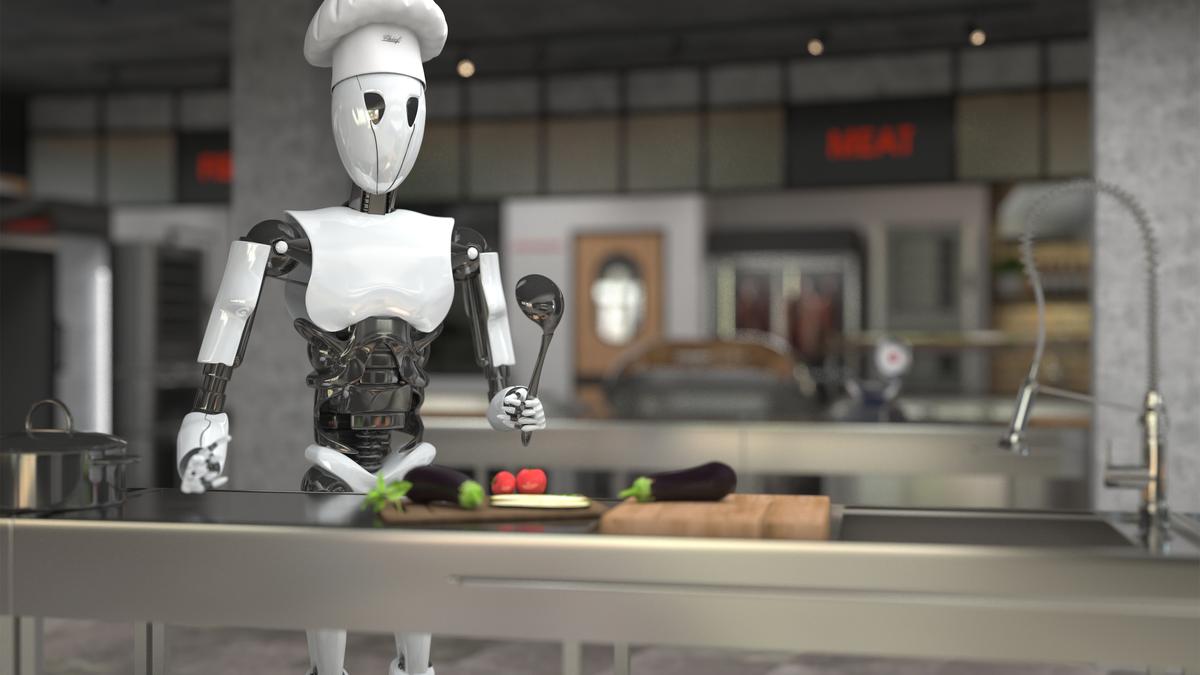A rtificial Intelligence, we all know, is capable of wondrous things. It can compute, it can compose, it can collate..
. but can it cook? Can it rustle up what is universally acknowledged as the best breakfast — a plate of steaming idlis? Heated debate over this raged in my family circles and no satisfactory conclusion appeared in sight until the matriarch weighed in. “Artificial intelligence,” she proclaimed, “is good for a lot of things, but making the perfect idli is somewhere between a science and art, and AI can’t get there.

” A few weeks later, I invited a gaggle of my near and dear ones for a spectacle of AI in the kitchen. Idlis are a lot like cricket — so much depends on the batter. To arrive at the proper mix of rice and skinned black gram and to get it to the right consistency before fermentation kicks in is a hit-or-miss affair.
So I turned to store-bought branded batter. Since the ads tell us that the batter has been prepared using artificial intelligence to control temperature, consistency and speed, I told myself that I wasn’t cheating. My relatives gathered, some to see me demonstrate the wonders of artificial intelligence and some, no doubt, to watch me make a fool of myself while ungraciously helping themselves to my breakfast.
A timer connected to the cooker guided me through the steaming part. Moments later, they emerged from the hollows of the plate. Beaming and steaming, fluffy as a summer cloud and designed to be drooled over.
All of us reserved judgment until the matriarch pronounced her verdict. “They are good,” she said, “but how much of it was really AI?” My response was guarded. The way you react to AI tells us who you are.
The optimist thinks it’s a welcome addition to those inventions which are reducing the grunt quotient and making life cushy. The pessimist says it’s bunkum. The alarmist believes AI is going to steal our jobs.
And the lazy lot is hoping it does. In between all of them, are the “not-so-sure ones” like me. Yuval Harari brings ominous tidings.
He says AI can learn to lie, and once it masters dissembling, it will not rest content with making idlis or dosas. It will have bigger fish to fry. When experts say this is the first invention which can think for itself, I look at the bright side.
I don’t object to other people and gadgets doing my thinking for me. The urge to out-think everyone else and appear as the brightest bulb in the box is juvenile and best left to participants in television debates. Other predictions by scientists are more dire.
They warn that being smarter than all of us, AI will one day hatch a coup to dispense with slow-witted encumbrances, that is us. Relax! Our myths and our history are replete with instances of inventions attempting to turn upon their masters. And we are still around to tell the tale.
My worries spring from an altogether different direction. Once it takes over the world, and is confronted with reality, I worry that AI is going to be disappointed in humankind. We know all too well that our world is neither round nor flat, it is obtuse.
With our pettiness, our pretensions and all that we imagined as light, AI will be in for a shock. It may even throw up its hands in despair crying “AIyyo!” jairam.menon@gmail.
com Published - April 20, 2025 04:10 am IST Copy link Email Facebook Twitter Telegram LinkedIn WhatsApp Reddit.
















